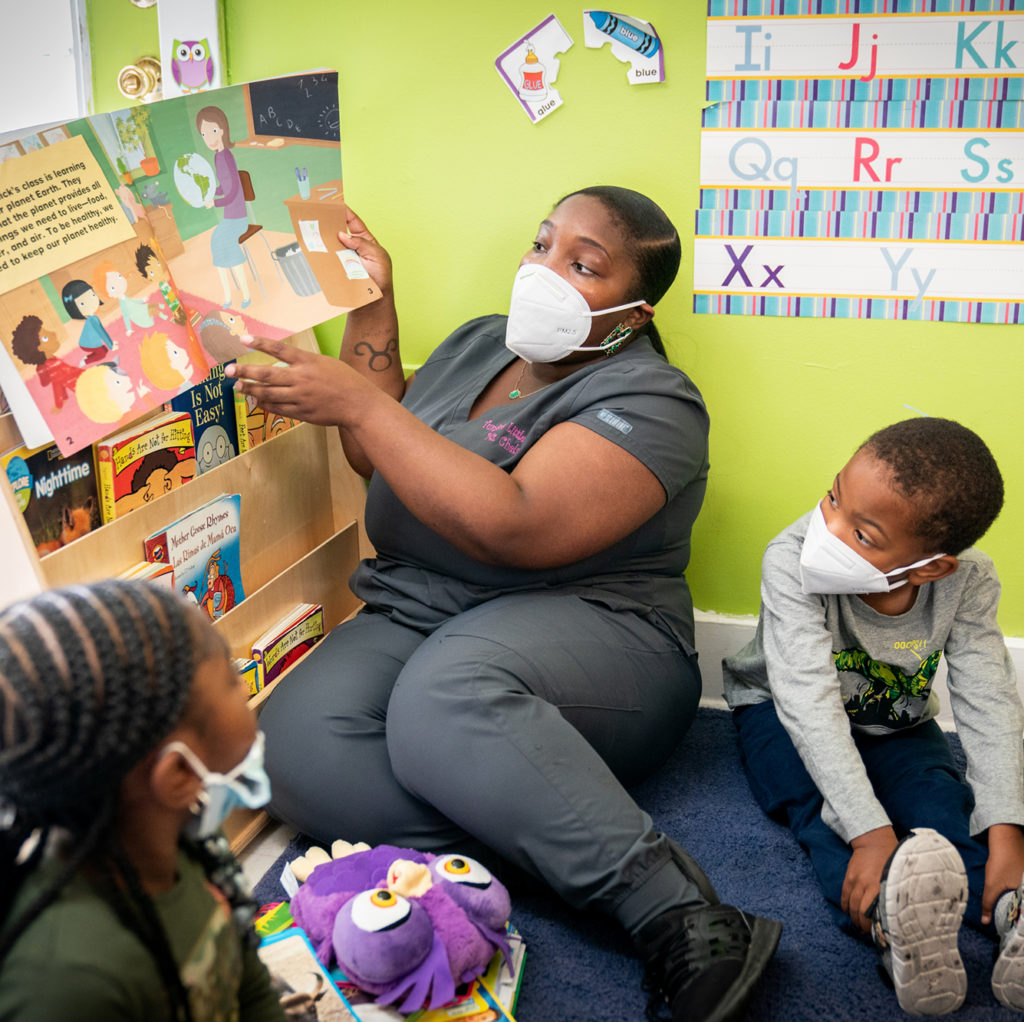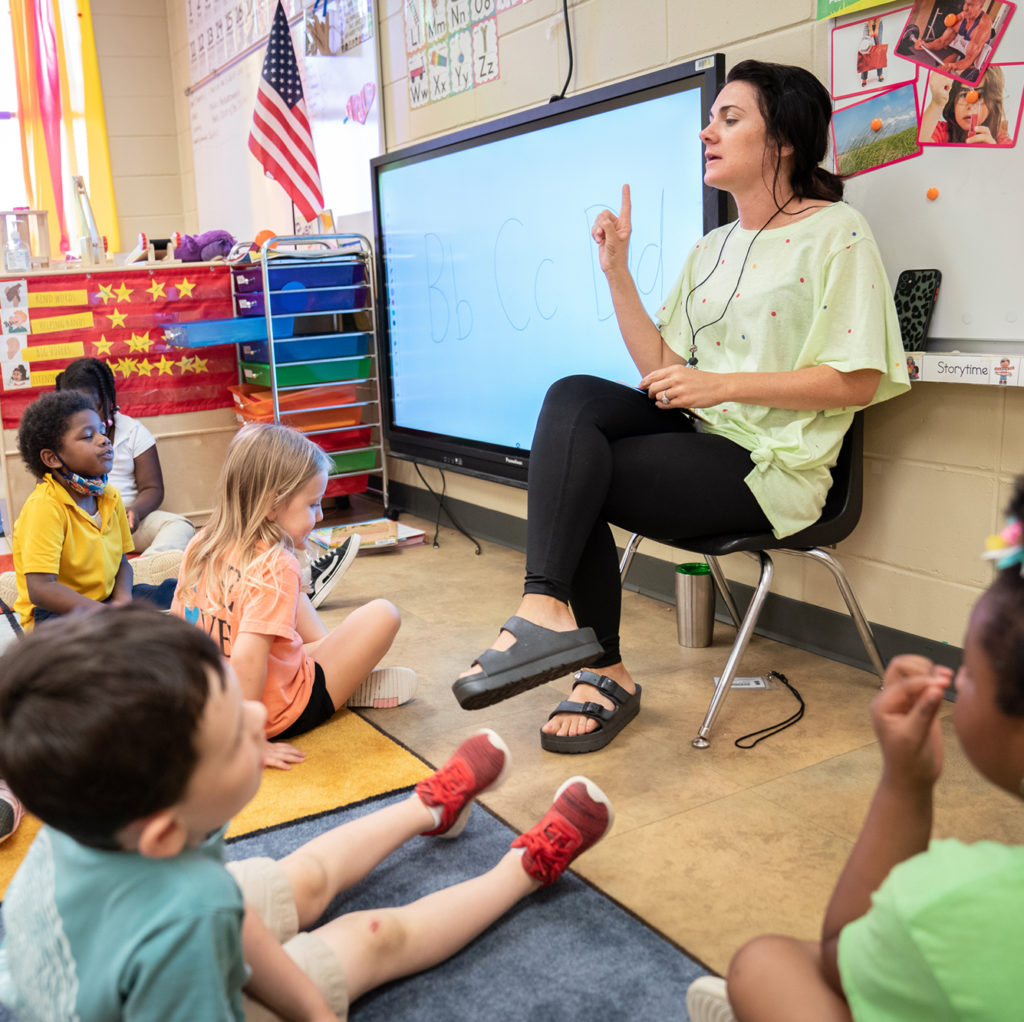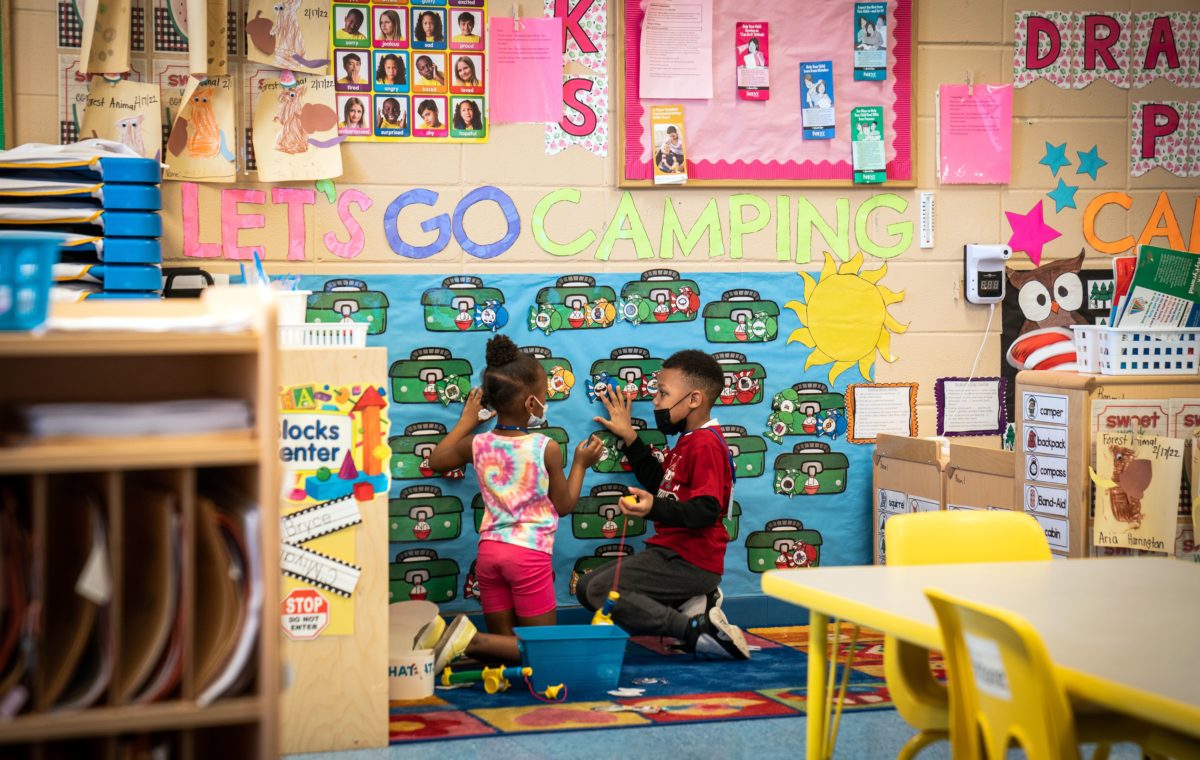The Early Learning Collaborative Act established state pre-K programs known as “Early Learning Collaboratives” or ELCs. All collaboratives are overseen by the Mississippi Department of Education, even though individual providers may also have other oversight agencies.
History of the Law
The Early Learning Collaborative Act, Mississippi’s state-funded pre-K program, reaches 25% of four-year-olds in Mississippi and provides pre-K teachers the support to ensure quality.
In 2012, Mississippi First published two major reports on pre-K, the Title I Preliminary Report which described how school districts were using Title I dollars to provide pre-K in public schools, and Leaving Last in Line which recommended a “collaborative delivery model” for state-funded pre-K. A “collaborative delivery model” brings all types of providers—public schools, private childcare, and Head Start—to the table, if they agree to meet high standards.
In 2013, we worked with Senator Brice Wiggins and then-Representative Toby Barker to pass the Early Learning Collaborative Act, which we wrote to reflect Leaving Last in Line. Passing both the House and the Senate with over 80% of the vote, the pre-K law was the most popular education effort in many years. That year, the legislature appropriated $3 million for the program, the first-ever state investment in pre-K. (Read the full history in our case study, Transforming Pre-K in Mississippi: The Story of the Early Learning Collaborative Act.)


In December 2013, the Mississippi Department of Education (MDE) selected 11 communities from across the state for the first round of Early Learning Collaboratives (ELCs). With each legislative funding increase, the number of impacted communities has grown. Today, there are 35 ELCs across Mississippi.
The legislature has increased its commitment to the program five times—$4 million in 2016, $6.5 million in 2018, nearly $6.7 million in 2019, $16 million in 2021, and $24 million since 2022.
In 2023, Mississippi First successfully advocated a permanent per-pupil rate change. In the pre-K law, the state promises to pay half the cost per child for a program meeting the state’s high standards. The state has now raised the rate to $5,000 so that the state and collaboratives each contribute $2,500 per child.
Since 2022, the legislature has given pre-K two additional gifts in the budget—an overall funding amount of $24M, which is an $8M increase over 2021, and a coaching line item of $3.25M, which is a little over double 2021’s amount. These budget amounts will allow the state-funded pre-K program to reach 25% of four-year-olds in Mississippi and provide pre-K teachers the support to ensure quality.
Understanding the Law
Collaboratives have several unique features. The list below briefly describes the most important features differentiating ELCs from other Mississippi pre-K programs.
To learn more, we encourage you to read the legislation and view a video of its passage in the Senate through Legislative History Project at MC Law: Video of Senate Bill Passage. You can also read our How to Start a Collaborative Toolkit.

